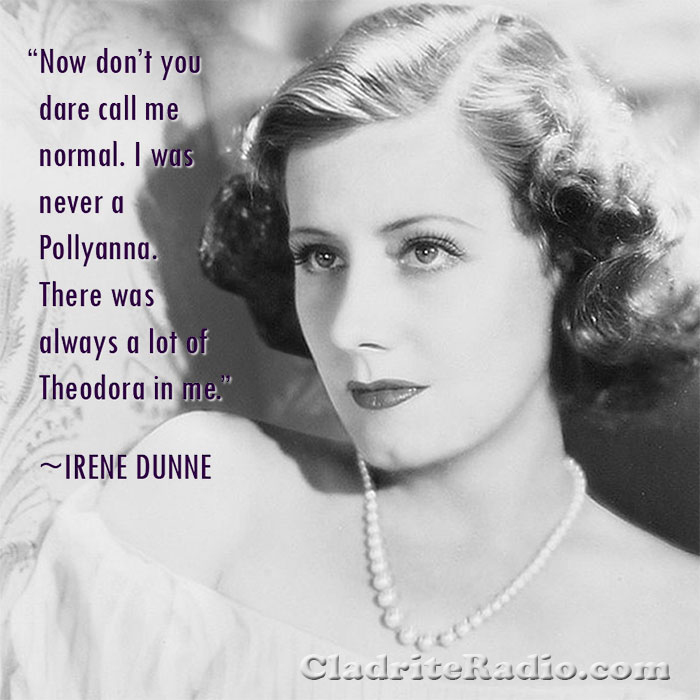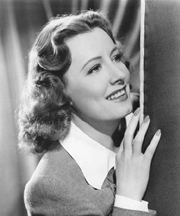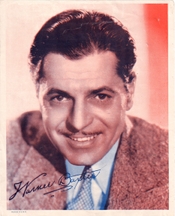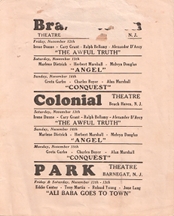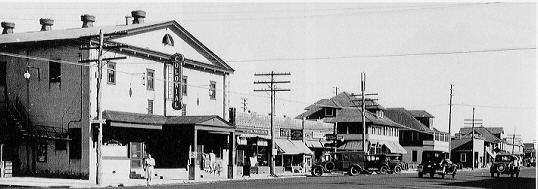The lovely Irene Dunne was born Irene Marie Dunn 118 years ago today in Louisville, Kentucky. Here are 10 ID Did-You-Knows:
- Dunne’s father was a government steamboat inspector and her mother was a concert pianist and music teacher.
- Her father died with Dunne was six and she moved with her mother and younger brother to her mother’s hometown, Madison, Indiana.
- Dunne was raised Roman Catholic and remained devout for the rest of her life.
- She attended Chicago Musical College on a scholarship and had designs on a career as an operatic soprano, but her audition for the Metropolitan Opera Company in NYC was not a success.
- Having added an “e” to her last name, Dunne then set her sights on musical theatre. She toured in the popular play Irene in the early 1920s and made her Broadway debut in 1922 in The Clinging Vine by Zelda Sears.
- She earned a role in Showboat after meeting Flo Ziegfeld in an elevator, and it was while touring in that show that she was discovered by Hollywood, signing a contract with RKO in 1929. Her first film role was in Leathernecking (1930), based on the musical Present Arms.
- Dunne, who had married Francis Griffin, a New York dentist, in 1927, moved to Hollywood with her mother and brother, maintaining a long-distance relationship with Griffin for more than five years. He finally moved west in 1936.
- Dunne was originally featured in dramas and musicals and is said to be have been hesitant to tackle comedies, but she hit the comic ground running in 1936 in Theodora Goes Wild. She would go on to excel in screwball and romantic comedies, including The Awful Truth (1937) and My Favorite Wife (1940).
- Dunne’s last film was It Grows on Trees (1952), though she worked on radio and television after that. “I drifted into acting and drifted out,” she once said. “Acting is not everything. Living is.”
- Dunne was nominated five times for the Best Actress Oscar—for Cimarron (1931), Theodora Goes Wild, The Awful Truth, Love Affair (1939) and I Remember Mama (1948)—but never took home the statuette.
Happy birthday, Irene Dunne, wherever you may be!
